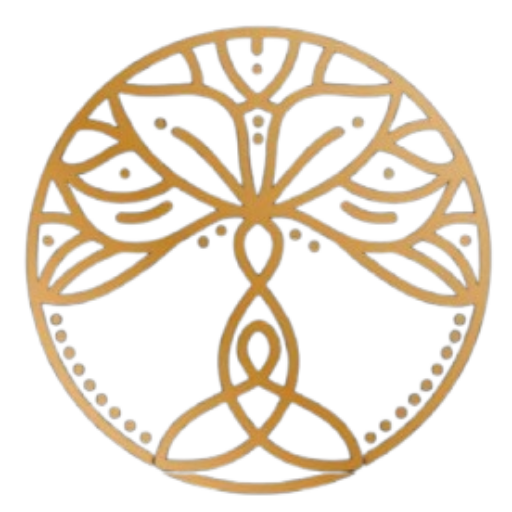Introduction: PCOD and the Siddha Approach
Polycystic Ovary Syndrome, or PCOD, affects many women, causing symptoms like irregular periods and hormonal imbalances. These symptoms can disrupt daily life. Many women seek natural ways to manage PCOD, and this is where Siddha medicine comes in. Siddha for PCOD offers an ancient Tamil approach focusing on body and mind balance. Incorporating such natural remedies can provide relief and complement modern medical treatments. Exploring these remedies not only gives an alternative option but also enhances overall well-being. Understanding this ancient practice can inspire people to choose natural, holistic health solutions.
Unveiling Siddha Medicine: A Historical Perspective
Siddha medicine is part of India’s rich cultural heritage. Originating in Tamil Nadu, it has been a significant healthcare practice for centuries. This traditional medicine focuses on balancing the body, mind, and spirit, ensuring overall health. Siddha for PCOD involves blending herbal treatments and lifestyle changes to manage symptoms effectively. The practice is based on a holistic philosophy that aims to heal the whole person, not just the symptoms. In traditional Indian healthcare, Siddha medicine plays a crucial role as it emphasizes natural wellness. It’s interesting to note how this age-old practice still holds relevance today, offering natural relief for modern health challenges like PCOD.
PCOD: Symptoms and the Need for Siddha Interventions
PCOD symptoms can be varied, including weight gain, acne, and hair loss, alongside menstrual issues. For women, these signs represent societal and medical challenges, affecting both physical and emotional health. Modern solutions often address symptoms superficially, leaving the root cause untouched. This is why many women are turning towards natural approaches like Siddha medicine. Exploring Siddha for PCOD unravels a path to manage the condition naturally. The holistic nature of Siddha treats symptoms while promoting general health, addressing both obvious issues and underlying causes. This way, Siddha interventions provide more than relief; they offer an enriching journey toward balanced living.
Natural Siddha Remedies for Managing PCOD
Siddha for PCOD involves a range of natural remedies that women can incorporate easily. Traditional herbal concoctions, like those using fenugreek and gooseberry, aid in symptom management. These natural solutions support hormonal balance and improve overall health. Siddha techniques like yoga, meditation, and pranayama also play a vital role. Including such practices helps maintain hormonal balance and soothes stress, a common PCOD trigger. Integrating these Siddha medicine techniques into daily life can be quite practical. Start with simple steps:
- Daily Practice: Dedicate 10 minutes to yoga and meditation daily.
- Herbal Intake: Incorporate herbs like turmeric and ginger into meals.
- Balanced Diet: Follow a balanced diet plan rich in fruits and vegetables.
These practices support natural PCOD management, aligning with a holistic lifestyle.
Lifestyle and Dietary Modifications for PCOD Relief
Siddha for PCOD emphasizes lifestyle changes as part of its natural management strategies. It encourages individuals to embrace lifestyle modifications rooted in traditional Siddha principles. These include:
- Yoga and Exercise: Regular physical activity to improve metabolism.
- Pranayama: Breathing exercises to reduce stress.
- Balanced Living: Aligning daily activities with natural rhythms.
In terms of diet, Siddha suggests meal plans rich in natural, fresh produce. Sample meal plans could include:
- Breakfast: Millet porridge with fruits.
- Lunch: Brown rice with vegetables and lentils.
- Dinner: Salad with chickpeas and greens.
These adjustments, inspired by Siddha medicine, help alleviate symptoms and improve overall health. They provide a doable approach to lifestyle transformation for better PCOD management.
Integrating Siddha with Conventional Treatments
Combining Siddha for PCOD with modern medicine offers a balanced treatment approach. Integration can enhance the effectiveness of conventional treatments, providing holistic benefits. Women have found success stories where such integration led to significant improvements. A patient might continue conventional hormonal therapy while adopting Siddha medicine practices like diet adjustments and stress-relief techniques. Such a blend ensures all aspects of PCOD are addressed. This integration reflects the possibilities of approaching health comprehensively, utilizing both ancient wisdom and modern advancements for optimal outcomes.
Scientific Evidence Supporting Siddha’s Efficacy
Research into Siddha for PCOD is growing, with studies indicating its potential effectiveness in symptom management. Scientific evidence highlights improvements in ovulatory cycles and hormonal balance when combining Siddha medicine with other approaches. This promising research opens new avenues for further exploration. As interest in natural remedies grows, the future of Siddha research looks bright. More studies can deepen understanding and validate Siddha’s role in managing endocrine disorders like PCOD.
Demystifying Common Myths About Siddha
Many perceive Siddha medicine as unscientific, but ongoing research counters this belief. Combining it carefully with other medical treatments is essential for safety. Personal stories and expert opinions are valuable for debunking myths. Many women have shared successful experiences, pointing to Siddha’s positive impact on PCOD. Educating about its holistic nature and safety can change perceptions.
Conclusion: Embracing Siddha for Holistic Well-being
Siddha for PCOD offers natural relief and a holistic approach to health. Embracing these ancient practices fosters wellness, integrating tradition with modernity. These practices empower individuals to manage PCOD effectively, improving their quality of life.

